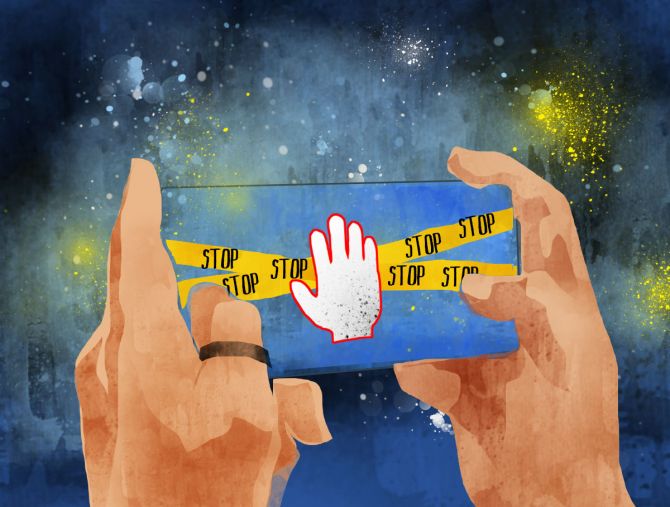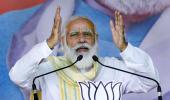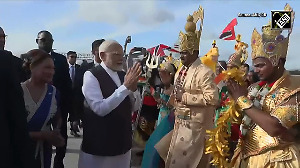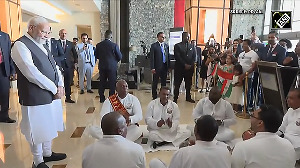Particularly the small and independent Web sites that have developed a following in the recent past because the mainstream is seen as totally aligned with the government, points out Aakar Patel.

On 6 April 2023, the Union government passed new rules, allowing it to identify what it thought was any fake or false or misleading content online related to the government.
This would be done by a 'fact check unit' set up by the government which would send takedown orders to social media platforms.
This determination that news was false or misleading would be solely at the government's discretion.
The rules would give the government authority to force social media firms to take down such content or face action.
The Internet Freedom Foundation, which is an Indian digital liberties organisation, said that 'assigning any unit of the government such arbitrary, overbroad powers to determine the authenticity of online content bypasses the principles of natural justice, thus making it an unconstitutional exercise. The notification of these amended rules cement the chilling effect on the fundamental right to speech and expression, particularly on news publishers, journalists, activists.'
The Editors Guild of India said it was 'deeply disturbed' and that there was not even a mention of 'what will be the governing mechanism for such a fact-checking unit', what the judicial oversight, if any, was, or the right to appeal.
'All of this is against principles of natural justice and akin to censorship,' it added.
The target is digital media, particularly the small and independent Web sites that have developed a following in the recent past because the mainstream is seen as totally aligned with the government.
The fact that the government is going after them so specifically also shows that their work is effective.
The new rules also arrive with a particular background. For the last few years, India has led the world in Internet shutdowns.
India had 6 shutdowns in 2014, 14 in 2015, 31 in 2016, 79 in 2017, 134 in 2018, 121 in 2019, 109 in 2020, 106 in 2021 and 84 in 2022.
To put this in perspective of 213 total global shutdowns in 2019, India accounted for 56 per cent (12 times more than the next nation, Venezuela).
Of 155 global shutdowns in 2020, India accounted for 70 per cent, denying people -- patients access to tele medicine and children access to online learning during the pandemic.
India imposed 17 months of Internet blockade on Kashmiris, and then targeted the farmers' protests outside Delhi with shutdowns but this has become common elsewhere also.
Many people from Punjab currently have had their social media handles 'withheld' by the Indian government and even the BBC's Punjabi service was halted for some time.
What is happening is unnatural in a democracy where freedom of expression is a fundamental right, meaning a right that enjoys a high degree of protection from encroachment by the State.
In New India, the constant targeting of dissent through new and innovative mechanisms, the misuse of criminal law and the fear of mob violence have curbed free speech all but totally.
Where law, process and mob have not visited, self-censorship has.
One feels as an individual that saying certain things will get one into trouble.
In the age of social media what these things are become apparent rather quickly because the pushback is immediate.
One is aware of things that one believes are true but saying even those things will get one into trouble.
What sort of trouble? The filing of criminal cases, not just by the State, but also individuals who register FIRs; abuse and hatred on social and other media; violence by mobs that are not controllable by the State, even if it wants to control them.
It is best to avoid the problem by not saying what one feels, even if it is truth.
Visible action by the State, especially harsh and intimidatory action, against critics and dissenters acts as a deterrent.
It stops others from saying the same thing, and it gives pause to those who want to say something, but are now concerned about the fallout against them.
In India, the mainstream media has for the most part not required intimidation.
The reliance on government for licences and advertising, the popularity of the government's majoritarian ideology and the ownership of large swathes of media by corporate interests has meant that it has toed the line quite enthusiastically.
Indian users of social media have not followed suit and that is why this problem has required attention, which has come through the new IT rules.
What used to be a dozen or so takedown notices to Twitter annually from the government before 2014 now number in the thousands.
When fact-checkers post hate speeches by people, including those inside or associated with the ruling party, it is the fact-checker's post that gets taken down.
India has a problem with being told that it is falling on global indices that measure freedom.
The usual response is that those compiling the index are biased or ignorant or following some sort of agenda.
Honest engagement with the data would show that what they are saying is indeed true because every day brings news of further restriction.
It is important that this be written about and discussed because armed with the new rules, the government is set to ratchet things up further.
In no real democracy does the government empower itself to determine what is fact and what is misleading when it comes to reporting on the government.
Aakar Patel is a columnist and writer and you can read Aakar's earlier columns here.
Feature Presentation: Aslam Hunani/Rediff.com











